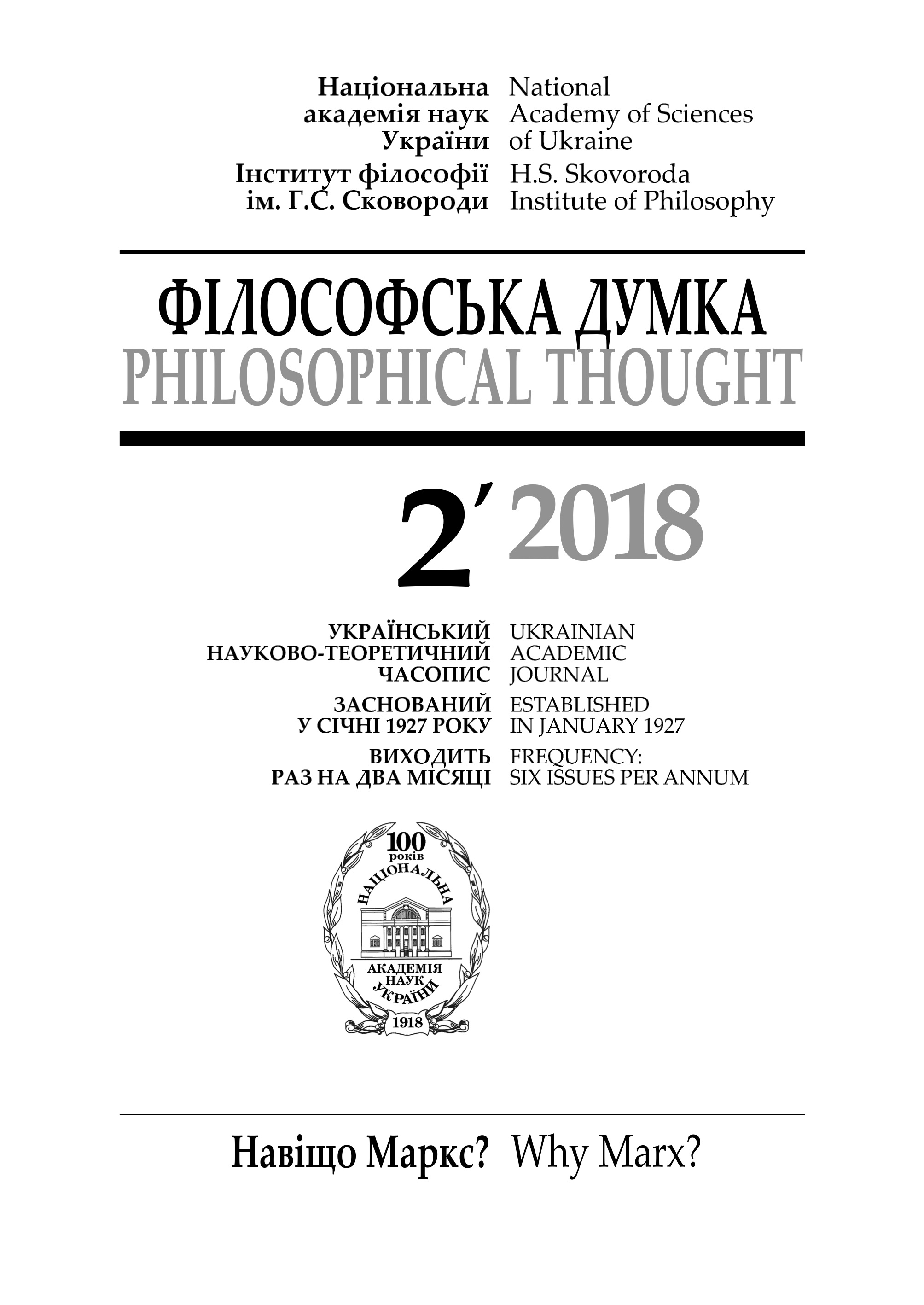Making sense of the puzzle of matter: Idealistic Challenge and Quasi-Kantian Response
Keywords:
matter, physical, mental, spatial, disposition, intrinsic property, quiddityAbstract
The article deals with the Berkleyan problem of the conceivability of mind independent physical reality (matter) and the Russellian problem of the intrinsic properties of matter, recently revitalized by such philosophers of mind as David Chalmers, John Foster, and Howard Robinson. Alternative approaches to this problem — pure dispositionalism, dispositionalism with mental anchoring, Berkleyan idealism, panpsychism, quasi-Kantian quidditism — are outlined and discussed. An argument is made for the tenability and preferability of the quidditist view, which holds that besides spatial and dispositional properties, fundamental physical entities have non-mental non-spatial non-dispositional intrinsic properties (quiddities), in which spatial and dispositional properties are ontologically anchored and grounded in the context of the actual laws of nature, and which are unknowable in the sense of the Kantian thing-in-itself’s unknowability.
References
Armstrong, D. (1968). A Materialist Theory of Mind. London: Routledge and Kegan Paul.
Berkeley, G. (2009a). A Treatise Concerning the Principles of Human Knowledge, In Berkeley, G. Philosophical Writings (pp. 67-150).
Clarke, D. (ed.). Cambridge: Cambridge University Press.
Berkeley, G. (2009b). Three Dialogues between Hylas and Philonous, In Berkeley, G. Philosophical Writings (pp. 151-242),
Clarke, D. (ed.). Cambridge: Cambridge University Press.
Chakravartty, A. (2003). The Dispositional Essentialist View of Properties and Laws. International Journal of Philosophical Studies, Vol. 11 (4), 393-413.
Chalmers, D. (2003). Consciousness and Its Place in Nature, In: Stich, S. and Warfield, F. (eds.) Blackwell Guide to Philosophy of Mind (pp. 10-242). Blackwell Publishing.
Chalmers, D. (2005). The Matrix as Metaphysics, In Grau, C. (ed.) Philosophers Explore the Matrix (pp. 132-176).
New York, Oxford: Oxford University Press, 2005.
Feigl, H. (1958). The «mental» and the «physical». Minnesota Studies in the Philosophy of Science, Vol. 2, 370-497.
Foster, J. (1982). Case for Idealism. London: Routledge and Kegan Paul.
Foster, J. (1993). The Succinct Case for Idealism, In Robinson, H. (ed.) Objections to Physicalism (pp. 293-313).
Oxford, New York: Oxford University Press.
Foster, J. (2008). A World for Us: The Case for Phenomenalistic Idealism. Oxford, New York: Oxford University Press.
Goff, P. (2017). Consciousness and Fundamental Reality. Oxford, New York: Oxford University Press.
Langton, R. (2004). Elusive Knowledge of Things in Themselves. Australasian Journal of Philosophy, Vol. 82 (1), 129-136.
Lewis, D. (2009). Ramseyan Humility, In Braddon Mitchell, D. & Nola, R. (eds.), Conceptual Analysis and Philosophical Naturalism (pp. 203-222).
Cambridge, London: MIT Press.
Nagel, T. (1974). What is it like to be a bat? Philosiphycal Review, Vol. 82, 435-450.
Nagel, T. (1979). Panpsychism, In Nagel, T., Mortal Questions (pp. 181-196). Cambridge: Cambridge University Press.
Robinson, H. (1982). Matter and Sense. A Critique of Contemporary Materialism. Cambridge: Cambridge University Press.
Russell, B. (1927). The Analysis of Matter. London: Kegan Paul. Science, Vol. 2, 370-497.
Downloads
-
PDF
Downloads: 195
Published
How to Cite
Issue
Section
License
Authors who publish with this journal agree to the following terms:
- Authors retain copyright and grant the journal right of first publication.
- Authors are able to enter into separate, additional contractual arrangements for the non-exclusive distribution of the journal's published version of the work (e.g., post it to an institutional repository or publish it in a book), with an acknowledgement of its initial publication in this journal.
- Authors are permitted and encouraged to post their work online (e.g., in institutional repositories or on their website) prior to and during the submission process, as it can lead to productive exchanges, as well as earlier and greater citation of published work (See The Effect of Open Access).


